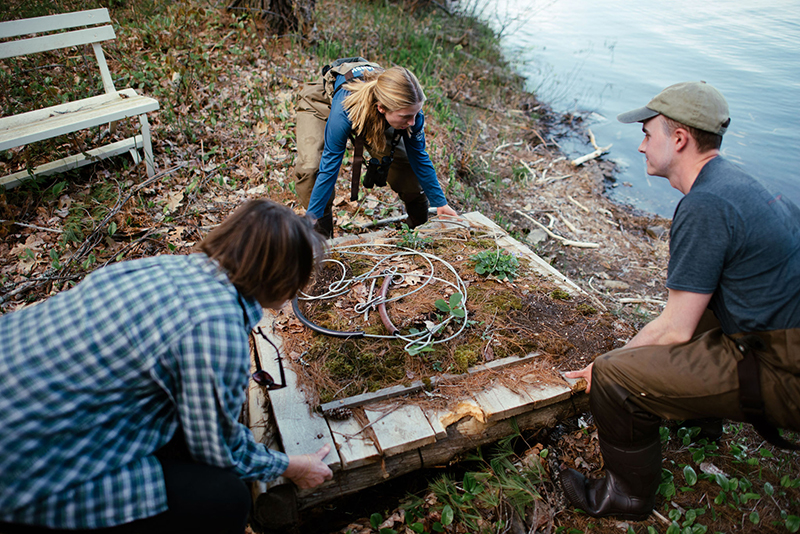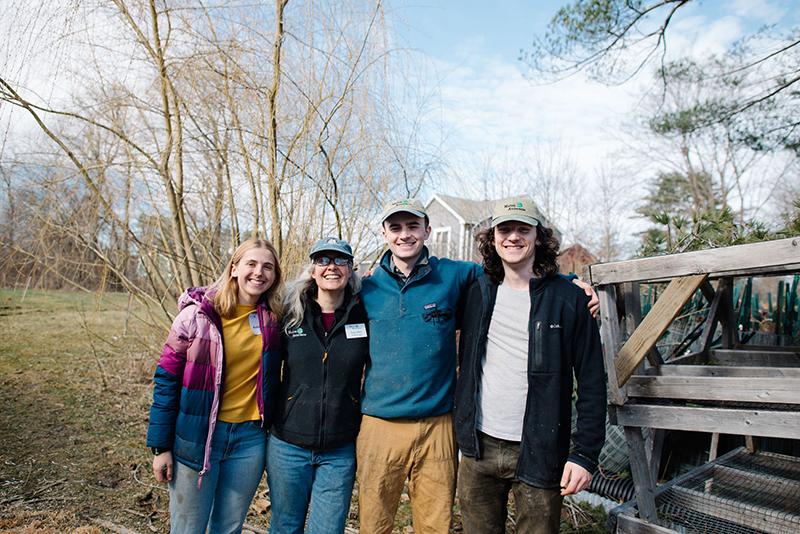
By Oskar Mattes, Loon Restoration Technician
The start of May is a busy time of year for life of all kinds across our state. Songbirds are returning to their breeding grounds, the forsythia and daffodils are in full bloom, and the oak and maple leaves are just starting to peek out. Common Loons are also looking over potential spots to nest, and frantic field biologists with the Maine Loon Restoration Project are doing their best to get as many rafts out on the water before the loons make their decisions.
Oftentimes a loon pair can nest just fine on their own and produce healthy chicks by the end of the summer, but this isn’t always the case. If a pair is failing for at least three years in a row, we’ll consider placing a loon nesting raft to help them out. These rafts can provide vital nesting habitat for pairs that can’t manage to successfully hatch chicks due to water level fluctuations, terrestrial predators, loss of nesting habitat, or a combination of all three.
The project is now in its fourth field season. The first month of the season has involved a lot of detective work to find loon pairs in trouble. We’ll conduct interviews with lakeside residents, scan through years of Loon Count forms, and pore over maps to look for a pair that isn’t producing chicks. If we do all our necessary sleuthing, and we find a nice protected location for the raft, and there is a strong network of volunteers looking out for the loons, the pair will get a raft!
So far this season, our team and a host of incredibly dedicated volunteers have successfully deployed 83 rafts on the water! Soon, the majority of loons will be making their final decisions on where to nest. The goal after five years of work is to have 99 rafts floating on our lakes and ponds.
We certainly have a lot of work to do before then, but luckily we’re already seeing the fruits of our labor this year! The first of our loon pairs was spotted on a raft near Turner a couple of weeks ago, and we just got word of the first egg on a raft just a couple of days ago. Hopefully we’ll have many more on rafts in just a few weeks!

